#Dimitri: Does that make us br--
Explore tagged Tumblr posts
Text
Thinking Lambrigue thoughts and like...how cute it would be if they raised a baby together 🥺
#like when their older#Felix and Dimitri are grown and they passed their titles to them already#and idk they decide to raise a baby together after some time 🥺#whether its by surrogacy or adoption#and felix and dimitri are excited to be big brothers ( Felix pretends not to care as per his usual Felix way )#Dimitri is just over the moon of being a big brother as hes been an only child his whole life#Dimitri: Does that make us br--#Felix: Shut up#Just let me have older parents Lambrigue pls 🥺#i just know that lil baby is gonna spoiled#spoiled but loved 🥺#I will draw this eventually#but for now it will remain in the soup that is my brain#:: koko speaking!#lambrigue#fe3h
26 notes
·
View notes
Note
I'd say Conquest's plot isn't even in the same league of stupidity as Golden Wildfire's tho, especially in regards to each route's mid-story twist; all the Nohrian royals were convinced Garon could still go back to being the good man he used to be if they kept doing as he said, meaning they wouldn't rebel against him solely on Corrin's say-so, especially when Azura's crystal ball only works for people with Vallite blood or exceptionally powerful magical talent like Leo, meaning Corrin would have had no evidence for their claim that Garon was actually a walking corpse who can never be redeemed and, as such, needed to be taken down, leaving them no choice but to try and get him to sit on the truth-revealing Hoshidan throne in order to get hard evidence for their accusations and convince the Nohrian siblings to turn on their father.
In contrast, Clout's plan (and, therefore, the entire rest of the story in GW) is idiotic and unnecessary on every conceivable level, to a much larger, more obvious and more consistent degree than Azura's plan in Chapter 15 of CQ; not only is allying with someone who's made it abundantly clear that she wants to conquer all of Fódlan, including his own territory, just because he thinks she cares about good PR and isn't going to keep the war going if she loses her initial publically-stated purpose for starting the conflict, stupid, so is thinking that the CoS is solely responsible for every bad thing that has ever happened in Fódlan, along with the notion that killing it's leader will just cause all those issues to disappear overnight and for everyone to be able to sing kumbaya together forever.
And for what it's worth, the CQ twist does have issues of it's own; the crystal ball, even if i defend it in regards to it having enough estabilished limitations to keep it from being of much use for anything other than what Azura used it for, is still a massively convenient asspull that's never brought up before or after the scene it's introduced in (and no, the Birthright scene doesn't count, needing to play through practically the entirety of a completely different route just for basic set-up on an important plot element would still be bad writing, especially when the game never tells you to play the routes in order of BR then CQ), and there should probably have been a few extra scenes at the end of the chapter of Corrin and Azura thinking over other possibilities and realizing that the latter's plan was the only realistic option they had, if only to make their reasoning clearer to the audience in-text instead of forcing them to infer it themselves, but even with those in mind, the combination of the plan in CQ being significantly more justified than in GW and the characters having actual reactions to what happens as a result makes it so CQ's plot is much less nonsensical than GW's, imo.
Well, tbh
Claude's GW stunt, imo, stings more because it's pretty obvious how the world, its characters and even lore are completely neutralised to make GW happen.
Say, in AG, when Dimitri takes the throne from his Uncle, we see and hear about revolts, and AG in general has him think a lot about Faerghus' stability, to make sure his people aren't embroiled in another civil war and can finally start living in peace.
Claudio pisses on the "no king no emperor" Alliance and turns it in a Federation, then sides with the imperialist who legit tried to conquer his land 5 months earlier - and we only hear in a footnote people being pissed but they're either erased in an auxilliary map or unheard of.
AG NPCs are learning to "adapt" and "accept" each others - Duscur with Faerghians, Church peeps with Kingdom peeps, etc. There used to be a conflict - lore wise - a few years ago (Regicide + revenge on Duscur) so there is a tension between Faerghus and Duscur, it's the topic of a few supports, and we see NPCs establish it : it exists.
Claudio's Federation?
Well, Almyrans were trying to force the border for funsies last month? Who cares, it's not like we have a Goneril NPC actually wondering why the fuck they are allied witl Almyrans or siding with Nader "I love to bring souvenirs!", one of the most well-known Almyran generals.
Apparently the CoS is so VeRy BaD that it forces people to be racist... but we don't see anyone, of the GW side, being miffed about fighting side by side with Almyrans. The party went to Sreng to arrange a surprise for the Kingdom? Again, no NPC, dialogue, support even suggests that anyone in the Alliance thinks the Srengese are BaD because they're not Fodlanese.
FFS GW bothered with giving us Holst, the leader of the Goneril vanguard and defence against Almyrans who are invading for funsies, but nothing he said is relevant to the conflict he is supposed to play a major part in.
We're left with Clout saying a lot of things that aren't shown on screen - and yet his sycophant allies buy everything and we end up with, well, what the route ends up as.
For the midtwist reveal...
Well, given how Clout (and Supreme Leader, but her plot is a special case) manages to get away with everything without having to work within the confines of Fodlan's foggy lore (just imagine if Dimitri, one day in AG, enrolled Sreng's most famous general in his troops and the Gautiers had nothing to say about that, not even the NPCs) - so him coming up with completely ridiculous plot and reasons/excuses to get rid of the Evil Lizard Lady - isn't more problematic as him calling Nader and his pals to his aid, since no one gives fuck about Almyran raiding Fodlan, why should people give a fuck about killing Rhea today because you had a strawberry jam toast this morning, or because Supreme Leader wants to use a pawn ?
Granted, credit where it is due, I once joked with friends about a NPC I arbitrarly called Padmé, who is, in GW, the only person who thought Clout was going to ally with the Kingdom and is puzzled and questions his choice to ally with the Empire instead.
GG Padmé.
At least in Conquest, we have the feeling we're playing the same game, with the same stakes, but reversed (in a way!) that the ones presented to us when we're playing BR : each time we invade a country, people call us traitors, we demolish a tribe of shifters and by the end of the story we're left with unfinished solutions - especially not helped by CQ - and Fates in general - being Treehouse'd !
Maybe this is the reason why the premise of Conquest - having Garon sit on the magic throne to reveal he's Gooron being the only thing that can make his children turn against him - felt really wrong to me - even if Treehouse downplayed how horribly fucked up the Nohrian royals were - because of the Camus effect : we have people being loyal/loving someone, despite starting a war and invading a neighbouring nation with all those things war entails, and they will still continue to fight no matter what - but if stars align a certain way and they realise their beloved leader is not the one they initially followed anymore, they will finally fight against him to try and stop the war?
Granted, I'm disgressing a bit here.
CQ ends on a similar story beat as GW - sort of, we have the conqueror of a nation wishing to make peace and sing kumbaya with the people he just invaded for, to those invaded people, no plausible reason, slaughtered key figures of the nations who were just trying to defend their lands and people, while having a puppet ruler (sure sure, Dimitri and Hinoka are rulers that exist in their own right, but can we seriously believe their actions wouldn't be monitored/restreigned by the Empire/Federation or Nohr?) in place.
And yet, unlike Golden Shower, CQ's end is not positive at all, because Azura disappears and... there are still things that moved the plot that aren't adressed at all, it's an ominous ending and Corrin, at least, knows it - especially as they see (iirc?) Azura disappearing!
Golden Shower's ending is as unconclusive as the rest of Nopes' endings - but there's no feeling of dread or anything similar we can get from CQ's ending "maybe the war will stop, or not" yeah sure.
Ultimately, I think the main difference between the two "plot twists" in those routes is, again, how divorced from the lore/world Clout's reasoning is - for his plan to actually make sense, it has to shoot itself in the leg (apparently Rhea BaD bcs people follow her religion and her religion make people marry, or whatever... but then, Judith says no one gives a fuck about her teachings in the Alliance :/) or, and worse imo, drags other characters down (just imagine a second Hinoka telling Takumi that, maybe they should let Garon sit on the throne so that would reduce the number of casualties, or Sakura confirming with Corrin that she will let Ryoma die to defend the capital, but only if that makes less Hoshidan civilians die).
So, in termes of nonsense, I agree, Golden Shower is way more nonsensical - not only because of Clout's ""plot"" twist, but because it bends the rest of the world (characters included!) for it to sort of make sense/be justified - than CQ's plot, even if I have my own grievances about it.
13 notes
·
View notes
Text
Dimitri and mental illness
**Warnings for Blue Lions spoilers and armchair psychology
Depending on who you ask, Dimitri is an innocent sweetheart whose actions are entirely excusable and justified or an unforgivable war criminal and overall terrible character. Arguments for both sides have been exhausted, usually in the form of the popular Edelgard versus Dimitri debate, but I feel that both statements are heavily flawed and, truthfully, I think I take more issue with the former. Does it strike anyone else as rather patronizing that the audience (and the game, to an extent) treats Dimitri like an innocent, broken uwu soft boy both before the time skip and once he begins his recovery arc? Of course, a lot of this can be blamed on the awful pacing and poor writing of said recovery (which is the most valid structural critique of his character imo), but there’s a lot to be said about the fan depiction of Dimitri and the way people treat his mental illness. I think the reason this gets me is because I see it as an extension of the problems I have with the romanticization of male-specific mental illness. In this case, “all depressed boys are emasculated, soft, sad bois” and “anger is an accessory that is vanished once the cute boy takes it off” with the related sentiment of “the only two real mental illnesses are depression and anxiety, with a splash of PTSD for argument's sake”. And, speaking of arguments, while many people bring up mental illness in regards to the discussion around Three Houses characters, it is often supplementary to support their points rather than the main point unto itself. Dimitri’s mental illness (aka, the thing his entire arc is predicated upon) is mostly given only a passing recognition in the discussion of his actions. Even then, it’s often used as a justification to defend or lambaste him.
TL;DR Dimitri is a flawed person with a debilitating and incredibly well written mental illness that, while not excusing his actions, allows for further exploration of his character and a well-deserved shot at a recovery arc that is not usually awarded to people with the “non-traditional” mental illnesses. Furthermore, the game offers a wealth of insight as to what they intended his mental illness to be, the symptoms that manifested, and a plausible background to match up with it all and I have the receipts to prove it. Let’s go~
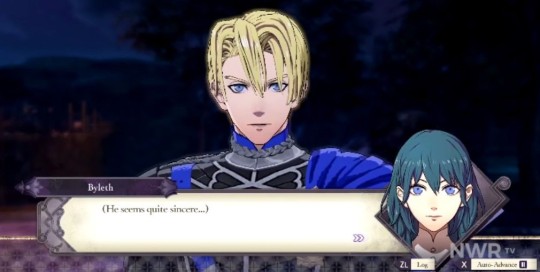
“Me? Oh. Um. Please forgive me... It's difficult to open up on the spot, don't you think? I'm afraid my story has not been a pleasant one... I do hope that doesn't color your view of me, but I understand if that can't be helped.”
I know that mental illness can be singularly caused by a traumatic event or events. That is, generally, how I see people framing Dimitri’s mental illness. My argument, however, is that the Tragedy of Duscur was not the genesis, but the trigger for issues that would exist otherwise. Perhaps it’s due to my own personal experience with mental illness, but I’m almost always more inclined to believe that issues stem from an unlucky combination of many things.
Regardless, my evidence to entertain the idea that he would be naturally predisposed to mental illness is slim. Aside from arguing that it wouldn’t be out of the question for his mother to have been unwell while she was pregnant with him considering she would later die of plague (a cause that in and of itself is subject to skepticism), I would bring up his Crest. In-game there is clear proof that Crests have wide-reaching effects on the person, there are actually a few analysis posts that hypothesize that Crests could be the reason for certain character motivations. In ng+, the Crest of Blaiddyd is called the Grim Dragon Sign. There’s no definitive proof to point to here, but if his Crest was one of the reasons for his mental deterioration it would follow other rules set in-game. Rather than inherited human genetics creating the blueprint for mental issues and the writers having to face that issue on its own terms, it was the Crest’s influence. This goes along with the fact that the game never overtly references Dimitri’s illness, essentially using “the dead” as a blanket symptom of his problems. Both these things are cool ways to imply a possible way to read more deeply without having to use anachronistic medical terms.
Side note: There’s something uncomfortable about the idea of a Crest that gives the individual inhuman strength and mental issues. Grim Dragon indeed.
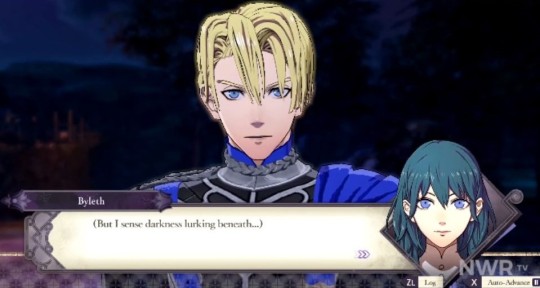
My next point is one that I don’t see being brought up too often in regards to how it might have affected Dimitri, likely because the events that came later in his life far overshadow it, but Dimitri lost his mom when he was young. The date is not given, but I think it’d be when he was about six-ish. Admittedly, the timeline is strange and non-specific around here but if that were true, it would mean that the plague, Dimitri’s mother’s death, and Lambert and Rodrigue’s war campaign to subjugate the southern half of Sreng would all have happened around the same time. Dimitri says he doesn’t remember it, but that doesn’t necessarily matter. At six years old he had lost one parent and the other one left him to go on a battle march, leaving this child without any sort of parent figure to console him in a country that is culturally opposed to expressing emotion. Lambert will probably always remain a mystery, but I think it could be fair to say he was a poor father. Or at the very least a distant one. Dimitri was undoubtedly a sensitive child (if we’re to judge by the sensitive person he grew up to be) and during the years where he was actually becoming old enough to remember, he had nobody to teach him how to properly navigate and manage his emotions. Emotional neglect in a child who is predisposed to being emotional and empathetic can leave them suffering from a sense of isolation, an inability to ask for help, and a predisposition to having break downs as they get older.
But three-ish years later, possibly one of the best things that ever would happen to Dimitri came to pass and Lambert married Patricia. Dimitri adored her.
“I share no blood with my stepmother, but to hear you say that... It pleases me greatly. She was the one who raised me. I suppose it makes sense that we would share certain mannerisms.” (Dimitri’s B support with Hapi)
I don’t think Dimitri’s feelings about Patricia can be overstated, as I feel it’s one of the most defining aspects of his reactions to things that happen later on. Dimitri talks about Patricia more lovingly than he talks about Lambert. She was in his life for around four to five years but had such an impact on him that even his mannerisms are similar.
Soon after, a ten-year-old Dimitri made his first friend that wasn’t knightly, who didn’t embody those Faerghus ideals of stifling emotions and swinging swords.

People point out the Faerghus crew as Dimitri’s best friends, and yet Edelgard is the one associated with his best memories. It’s just my own assumptions, but I think that it’s because both Edelgard and Patricia gave Dimitri space to be an emotional child, to not have to be the knightly prince who had no emotions and engaged only in the most masculine of activities. And, I mean, look at them. He’s learning to dance and she’s bossing him around, absolutely no regard for propriety.
It’s pretty clear that Dimitri doesn’t feel romantic feelings towards Edelgard in the academy phase, but I think it would be fair to say she was his first love when they were young. He essentially says this was the best year of his life and establishes Edelgard as someone very precious to him (as well as the daughter of one of the most precious people to him). Strong feelings beget strong feelings, do they not?
Google says that eleven to fourteen is the general age of male puberty. It’s the time that kids begin to more fully define how they’re going to emotionally interact with people and the world at large. Meeting Edelgard was at the cusp of this period of Dimitri’s life, and the Tragedy of Duscur was right in the midst of it.
And we all know what that turned out.
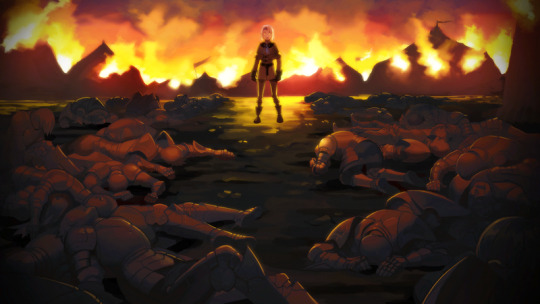
Dimitri’s accounts of what happened during the Tragedy are... conflicting. This CG of an unharmed Dimitri in a field of corpses is... conflicting.
“My father...was the strongest man I knew. Someone I loved and admired deeply. That said, he was killed before my eyes. His head severed clean off. My stepmother, the kindest person I had ever known, left me behind and disappeared into the infernal flames.”
I’ve seen people create a plausible scenario in which Dimitri’s recollection is entirely accurate, where he saw Lambert call for revenge and get beheaded, saw Glenn’s ruined body and face twisted in pain, saw his step-mother disappear into the flames, and all despite the raging chaos of the battle and how people would undoubtedly be targeting the prince, but I think it makes more sense that his memories are unreliable. Dimitri suffered a severe head injury (very important to keep in mind) at Duscur. Maybe that happened early on, after seeing who attacked Lambert but before he was an actual target himself, which merely made him look dead. Maybe he saw a version of the events he described, but through the filter of confused head trauma, smoke inhalation, and intense terror. To think that his recollection isn’t exactly entirely reliable sets a precedent for his later skewed take on reality.
Regardless of opinion, though, the facts are that Dimitri left Duscur with a traumatic brain injury and post-traumatic stress disorder.
After that, from thirteen to seventeen, Dimitri was pretty isolated. Most of the people he cared about were dead. His entire emotional support system (Patricia) was gone. He saved Dedue (although they were definitely not on even terms, that relationship is unbalanced to the extreme) and occasionally saw Rodrigue (who I have no reason to believe was emotionally accommodating in any way considering the way he sees Dimitri as an extension of Lambert to his dying breath). Again, it’s strange. People act like Dimitri was super close friends with the Faerghus crew, that he was surrounded by people who loved him (although it is clear there is a lot of love there), but he never presents things in a way to imply that’s the case. In fact, he highlights his isolation:
“In Duscur, I lost my father, stepmother, and closest friends. I didn't have many allies at the castle after that. In truth, I had only Dedue for companionship.”... “I once had people I could confide in. Family, friends, instructors, even the royal soldiers. But they were all taken away from me four years ago.” (Dimitri’s C support with Byleth.)
Two years passed before the next time Dimitri saw his friends and it was a war campaign, putting down the rebellion in western Faerghus. Dimitri speaks about those battles from a place of deeply affected emotion, expressing empathy, pain, and disgust with his actions and the killing.
“I recall coming across a dead soldier's body. He was clutching a locket. Inside was a lock of golden hair. I don't know to whom it belonged. His wife, his daughter...mother, lover... I'll never know.... in that moment, I realized he was also a real person, just like the rest of us… Killing is part of the job, but even so... There are times when I'm chilled to the bone by the depravity of my own actions.” (Dimitri’s B Support with Byleth)
I love this support, honestly. It’s so very telling about the destructive quality of empathy. Although caring can be a good thing, it’s also arguably one of the most destructive of Dimitri’s qualities. His empathy is what presents him with situations he cannot accept, the thing that pushes him to disassociate from reality so he can be rid of it and fight without remorse like he was taught to do by his father and other soldiers. Dimitri is a man of extremes. Either total control or none, without any room for error. This dialogue is also the first time Dimitri brings up reconciling himself with reality and hints to the fact that he has been unable to do so. This is contrasted perfectly in this line from Felix,
“The way you suppressed that rebellion... It was ruthless slaughter and you loved every second. I remember the way you killed your victims. How you watched them suffer. And your face...that expression. All the world's evil packed into it...” (Dimitri’s C Support with Felix)
Dimitri doesn’t deny this. Just like all of the other terrible things Felix says, he takes it without protesting in an act of what I think is stilted contrition. Although, it’s not just in supports that Dimitri’s contrasting behavior is brought up. The Remire incident probably works as a good reference for what Felix saw all those years back.

This is the first time we see Dimitri’s darker side in full. The similarities in the situation to what is shown to have happened in the Tragedy of Duscur are interesting. The fire, the utter chaos, strange figures watching it all from above. This is another case of a perfect disaster. I wonder if his ultimate snap would have been so destructive if not for Remire.
Anyway, this draws parallels to his and Felix’s separate recall of the rebellion because later Dimitri apologizes.
“Professor... I...I'm sorry you saw that side of me in the village… When I saw the chaos and violence there...my mind just went completely dark.”
Dimitri is unreliable. A lack of control, a separation of self, and becoming consumed by a dark rage only to come to his senses later, full of shame and a sense of confusion about why. From my own experience, it’s not unnatural to come out of an episode like this without being able to explain what was happening and being baffled by your behavior. This firmly establishes Dimitri’s uncomfortably fast mood shifts in relation to his trauma from the Tragedy and confirms all of the warnings Felix had given. When Dimitri was faced with a reality he could not accept, he lost control of his emotions and his mental state shifted to adapt accordingly.
This is when I’d also like to note something interesting about how Dimitri discusses his trauma. He is very honest and open about his experiences, explaining exactly what happened to him to Byleth. However, he uses the truth to hide. In recounting the events of the Tragedy of Duscur, in talking about how his family died and saying how badly it hurt him, he does not make himself vulnerable. When he admits weakness, he does so in the past tense or apologetically, vowing to be stronger. “Stronger”, aka, he’ll be better in suppressing his emotions.
“I always strive to keep my emotions at bay, but... Sometimes the darkness takes hold and...it's impossible to suppress. It just shows you how lacking I am... I have much to learn.”
Dimitri lies by using the truth, shoving down his feelings, and blaming himself rather than attempting to figure out how to handle his emotions. In his own words:
“Everyone has something that is unacceptable within them. I certainly do, and I'd wager you do as well. I wonder which is best, Professor... To cut away that which is unacceptable, or to find a way to accept it anyway...”
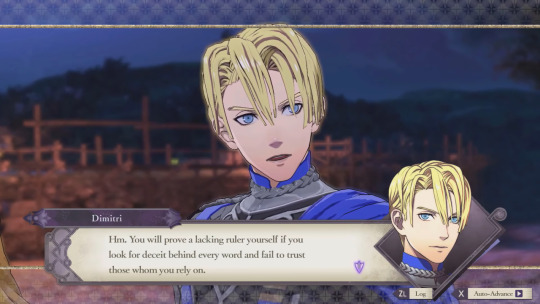
Good advice Dimitri. Might want to keep that in mind.
It is at this point is when I’m going to get into my personal thoughts and armchair psychiatry nonsense.
First off, when I mentioned earlier about “non-traditional” mental illness, I did not mean abnormal or rare. Although people mostly just point to Dimitri having PTSD (and depression) as the source of his issues, I’m going to use all of my above information to make the (decently common) argument that Dimitri is schizophrenic, which is, contrary to popular belief, not too unusual. I state that with the caveat that I understand that there’s a lot to be said about schizophrenia and the tumultuous relationship between mental health and fiction. However, now is not really the time to go into mental health politics and representation or the many lies spread about the illness so instead, I recommend that you read into the topic if you’re personally interested (This has some good information).
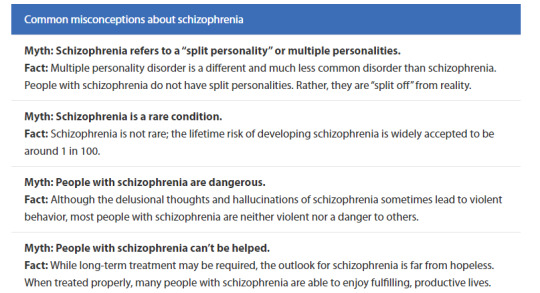
At the very least be aware that this IS sensationalized.
That said, Dimitri does not, to my understanding using grossly simplified terms, meet the qualifications generally (very generally) used to diagnose schizophrenia through the majority of the White Clouds chapters. These qualifying symptoms include, but are not limited to, the duration of the psychotic episode, the concurrent presence of hallucinations and delusions, and a greatly lowered ability to keep up with basic quality-of-life tasks. You only see these symptoms in the final chapter of White Clouds and the first few of Azure Moon. This isn’t unusual, however, because schizophrenia manifesting fully in younger individuals is extremely uncommon, sometimes taking years to trigger during a person’s late teens. And since the diagnosis generally relies on the occurrence of a psychotic episode, it can be mistaken as other mood disorders. Actually, the idea of him having a mood disorder was one of the things that caught my eye originally. Prodromal symptoms such as depression, irritability, headaches, sleep disruption, and mood swings are common in bipolar disorder (and, of course, schizophrenia).
Still, I don't deny that Dimitri has PTSD and depression, only that I don’t think PTSD is his main (or only) issue. In reality, PTSD and schizophrenia are closely tied. They share many symptoms, even the symptom of psychosis. There’s also evidence that those with genetic precedent to develop PTSD overlap with those at risk for schizophrenia, and that the nature of PTSD triggers can act as a severe stressor to aggravate a schizophrenic episode.
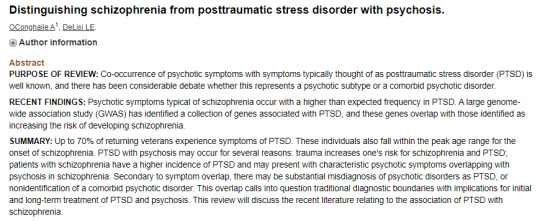
(From here)
This falls into the realm of being uncertain where one ends the other begins, highlighting the lack of concrete understanding about schizophrenia and the dependency of diagnosis and treatment to rely entirely on the individual experience, but that’s not a conversation I’m actually qualified to have.
The study that truly caught my eye and while researching for this was one called “Psychiatric disorders and traumatic brain injury”. As I mentioned, at some point during the Tragedy, Dimitri sustained severe head trauma. We know this because of his development of the rare inability to taste called ageusia. I was originally interested in following this narrative thread because, as you might know if you follow true crime cases, there are many murderers who recall having sustained a head injury as children. Not that Dimitri shares similar psychology to people that kill and eat their victim's feet... Although his body count is higher. Besides that, head trauma, in general, is known to be linked to mental illness and altering a person’s behavior. There is even a correlation between TBI (traumatic brain injury) and schizophrenia.
From the study I linked above:

To put it more simply, patients in the study who had suffered TBI and developed schizophrenia reported that their most common symptoms were delusions of persecution, auditory hallucinations, and aggressive behaviors. The auditory hallucinations were often voices. Many of the subjects experienced psychotic episodes two or more years after the initial incident (although, as I mentioned, Dimitri’s age could also have something to do with the timing as children rarely have fully developed schizophrenic episodes). Furthermore, the behaviors classified as an absence of normal behaviors called “negative symptoms” (which include apathy and disordered speech) were rare in this testing group.
Dimitri exclusively displays “positive” symptoms of schizophrenia (“positive” meaning the presence of symptoms such as hallucinations and delusions). He also clearly suffers from delusions of persecution in his belief that Edelgard is the sole instigator of Duscur and the war and that he immediately accuses Byleth of being an Imperial spy upon meeting them post time skip. I think it’s pretty fascinating how closely Dimitri’s symptoms follow the outline of the study, especially with the aggressive behaviors, as those aren’t actually very common in schizophrenics.
In very, very simplistic terms, if I’m right and Dimitri was born with the genetic blueprint for schizophrenia/PTSD (through Crests, inheritance, or environmental causes) and later suffered severe head trauma in an event that also gave him PTSD in combination with his pre-existing parental issues and stilted emotional development, then this could definitely create the type of person who loses all sense of reality, can’t control his emotions, and is prone to episodes of murderous rage when being reminded of the trigger (however tangentially) of losing everything he loved.
However, I��ll add real quick that the study I mentioned should be taken with a grain of salt.

I use it mainly because I thought the similarities were interesting and it shows that there was more thought put into Dimitri than maybe people appreciate.
This brings us to my final point; Some kind of twisted joke.
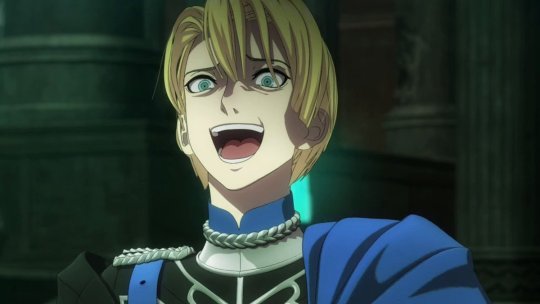
A major point I saw being made as proof of how terrible Dimitri is as a character was that he blamed Edelgard for the Tragedy of Duscur (a time where she would have been twelve). More accurately, he blamed her for everything that had happened and the thing is, I don’t disagree with that critique entirely. However, this is a case of him being a bad person, not a bad character. This might seem like an odd distinction, but I think it changes the scope of deserved criticism.
As I’ve been trying so desperately to illustrate, Dimitri snapping wasn’t just because of Edelgard being revealed as the Flame Emperor. Rather, it was an unlucky combination of many things. His grasp and interpretation of reality were already hazy at best by the time she was unmasked, slowly falling apart as his prodromal symptoms worsened. Going into the fight, he believed the Flame Emperor to be responsible in whole or in part for the worst thing that had ever happened to him, guessed at Arundel’s involvement, had found (and lied about) the dagger, and was rapidly mentally deteriorating. While Dimitri suspected Edelgard’s involvement to some degree, he did his best to act like it wasn’t true.
Dimitri didn’t want it to be true. To the extent that he was willing to lie to Byleth (and to himself) to avoid reality. He cared deeply about Edelgard. The best year of his life was spent with her, she was his first love, and she was the daughter of the step-mother he adored. Strong feelings beget strong feelings, do they not? This reveal confronted Dimitri with something that he could not accept, so his mind sidestepped the issue altogether. Delusion convinced him that all of the fears and worries he had beforehand were related, all into one larger delusion that Edelgard had sole responsibility. It’s not right and maybe not even excusable, but it falls in line with everything else.
Edelgard and Dimitri. Bound by some twisted fate but forever doomed to be separated, unable to understand the other’s chosen path.
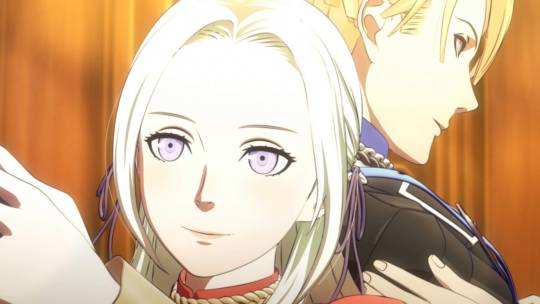
I do recognize the flaws of Dimitri’s character and arc. There are some pretty major flaws. I have parts of a post typed out about his shoddy recovery and how I’d fix it that, hopefully, one day will see the light of day as well as many complaints about the way the story is hindered by the need for flexibility to accommodate gameplay and a happy ending.
But, despite that, this has all been a very long-winded way of praising Dimitri’s writing. His mental illness has a surprising amount of depth and I loved studying it as intently as I did. I learned a lot about his character as well as about mental illness in general.
Ultimately, Dimitri is neither an innocent sweetheart whose actions are entirely excusable and justified or an unforgivable war criminal and overall terrible character. You can feel bad for his pain and his struggle with his illness and understand that as a reason for his actions, but you shouldn’t use it as justification. He had the opportunity to seek help before things got too bad. He was selfish with the mismanagement of his emotions and goals. However, he also was a victim. Dimitri worked to recover and mend the mistakes he made while he was unwell, which is a side of this mental illness that is rarely shown in media.
I wholeheartedly believe that, love him or hate him, Dimitri is the most well-written of the Three Houses characters,
#dimitri#fe dimitri#dimitri alexandre blaiddyd#fire emblem 16#fire emblem#FE3H#fire emblem three houses#i spent an ungodly amount of time on this feel free to share your thoughts
176 notes
·
View notes